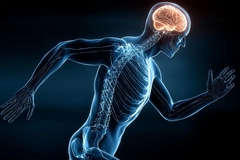
- Industry news
Industry news
Trending now
- Category news
- Reports
Trending now
- Key trends
Trending now
- Multimedia
Multimedia
Trending now
- Journal
- Events
Trending now
- Suppliers
Suppliers
Trending now
- Home
- Industry news
Industry news
Trending now
- Category news
- Reports
Trending now
- Key trends
Trending now
- Multimedia
Multimedia
Trending now
- Events
Trending now
- Suppliers
Suppliers
Trending now
Lidl urges tailored sports nutrition training for women after flagging knowledge gaps

Ahead of the Union of European Football Associations (UEFA) Women’s Euro 2025 (July 2–27), new research commissioned by Lidl reveals a “significant shortfall” in female-focused sports nutrition knowledge, underscoring a “critical barrier” to women’s participation and performance in sport.
Despite growing female involvement in fitness and competitive sport, the study found that nearly one in three women (31%) are missing out on sport during their menstrual cycle, with almost 80% of women having never received specific advice on how to fuel their bodies for exercise.
Notably, one in five men remains unaware of how a woman’s menstrual cycle can impact her energy levels. The researchers say this is a concerning gap in knowledge, especially given that coaching roles in sport continue to be predominantly held by men.
While over half of the respondents to the research survey are interested in seeking practical nutrition guidance, the report identifies that only 18% of women have ever received such information.
“Nutrition advice for women is often too focused on restriction. It focuses on cutting carbs, fats, or calories, rather than supporting what women’s bodies actually need,” says nutritionist and founder of The Food Medic, Dr. Hazel Wallace.
She stresses that women have distinct nutritional requirements due to hormone fluctuations across the menstrual cycle, pregnancy, and menopause. “Hormone shifts throughout the month impact appetite, mood, sleep, and how the body processes carbs, protein, and fat.”
“Most mainstream advice overlooks these differences, leaving many women under-fuelled, underperforming, and with worsening symptoms of conditions like premenstrual syndrome.”
She underscores that women who understand how to adjust nutrition according to their cycle can “make a big difference in energy levels, performance, and overall well-being.”
Urgent need for accessible information
The survey of 2,000 UK participants reveals an “urgent need” for more accessible gender-informed nutrition education. Of those who exercise regularly, 71% felt “more needs to be done” to educate people on female nutrition in sports. Meanwhile, over 67% had never been given tailored guidance to support their training and recovery.
Professional footballer and content creator Freda Ayisi shares her experience: “I definitely felt the most clueless about nutrition when I was a teenager, playing multiple times a week after school and at the weekend made me feel so tired, not to mention trying to keep my energy up and battle my hormones around my period.”
 Women have distinct nutritional requirements due to hormone fluctuations across the menstrual cycle, pregnancy, and menopause.Lidl recently held a prominent panel discussion at the Emirates Stadium, UK, highlighting its partnership as the Fresh Fruit and Vegetable Partner for UEFA Women’s Euro 2025. The event gathered experts in football and nutrition to discuss how a deeper understanding of the female body — including hormonal changes and nutritional requirements — can improve performance and overall well-being for women throughout their lives.
Women have distinct nutritional requirements due to hormone fluctuations across the menstrual cycle, pregnancy, and menopause.Lidl recently held a prominent panel discussion at the Emirates Stadium, UK, highlighting its partnership as the Fresh Fruit and Vegetable Partner for UEFA Women’s Euro 2025. The event gathered experts in football and nutrition to discuss how a deeper understanding of the female body — including hormonal changes and nutritional requirements — can improve performance and overall well-being for women throughout their lives.
Women-tailored nutritional tips
Dr. Hazel Wallace provides five key nutrition tips for women to optimize their well-being when exercising. A fundamental recommendation is to eat enough calories. Insufficient caloric intake can lead to the body entering an “energy-saving” mode, potentially disrupting the menstrual cycle, hindering recovery, and negatively impacting mood, energy, and metabolism.
Another crucial tip is to fuel up before exercising. Engaging in fasted exercise can impair performance, increase muscle breakdown, and elevate cortisol levels, which over time may adversely affect hormone balance, sleep, and recovery. She recommends a light pre-training snack, such as a banana or dates, to protect muscles and support menstrual health.
Furthermore, Dr. Wallace emphasizes the importance of including enough carbohydrates in the diet. Low-carb approaches can reduce thyroid hormone levels, vital for energy, metabolism, and temperature regulation. Carbohydrates also serve as the primary fuel source during exercise, crucial for performance and reducing fatigue.
Finally, Dr. Wallace advises women to track their menstrual cycle. While a different diet isn’t necessary for each phase, she notes monitoring the cycle can help identify patterns and allow for personalized adjustments to training and nutrition based on how one feels.
Active women doing strength or endurance training should aim for at least 1.6 g of protein per kilogram of body weight daily to support muscle repair, recovery, and hormone health. Dr. Wallace recommends to distribute protein intake evenly throughout the day, targeting 20–30 g per meal, and consider incorporating plant-based protein sources like legumes.
“Perceptions of women’s sport have advanced so much since my playing career, but behind the scenes, there’s still more work to be done,” says Fara Williams, former Lioness and pundit.
“During my time with the Lionesses, we never had access to nutritionists, something today’s squad thankfully benefits from. But for many female players across the game, that level of support is still out of reach. There’s still work to be done.”
In step with Women’s Health Month, Nutrition Insight recently caught up with ADM, Gnosis by Lesaffre, Sirio Pharma, and Finzelberg to explore the latest in women’s health innovation, including cycle-smoothing chocolates, menopause-soothing rhubarb, dissolvable mood-lifting films, and effective forms of folate for fertility.










